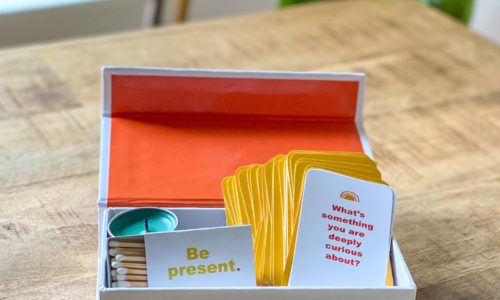Our standardized test scores are in.
On average and in comparison to national standards, the elementary school Eagles moved up 2.5 grade levels this year (in reading, writing and math). Our middle school and high school Eagles moved up over 3.5 grade levels (in reading, writing, math, science and social sciences.)
I am satisfied but not excited about our scores. Frankly, they are the least interesting measurements of the learning that is happening in our studios every day.
What excites me is the following list of Top Lessons Learned written by one of our older Acton Eagles who asked to remain anonymous. It is 100% unedited. This list proves that our children are learning how to learn, learning to find meaning and learning how to become the best versions of themselves. It also gives me so much hope for the future of our world.
No bubble test can measure this:
74 Lessons Learned as an Acton Eagle
- “If you want to go fast, go alone. If you want to go far, go together.” (African proverb)
- You can always do more than you think you can. You set your own limitations.
- Plan every day and every event in advance.
- Schedule out your time according to your top priorities. Don’t spend time doing things that don’t matter.
- Spend a lot of time deciding these priorities. It’s okay if they change every week, as long as they are truly what matters most that week.
- Invest a lot of time in people right away and you will have to spend a lot less time helping them later.
- Keep track of where your time goes each day, week, month, and year. Revisit these numbers and ask yourself if this is how you want to be spending your time.
- Do the hardest task first thing in the morning.
- Wake up early.
- Stay positive.
- Always persevere.
- Read as many quality books as you can.
- Be honest with yourself and with others.
- If something isn’t working, create a solution.
- Take time off to rest and recover.
- Don’t try to multitask.
- Help those who want to improve; leave behind those who don’t.
- Identify your strongest and weakest traits and practice both every day.
- Keep an open mind.
- Stay organized.
- Keep your workspace clean and neat.
- Finish one project before moving on to a new one.
- It’s better to complete one excellent piece of work than five average pieces of work.
- Stress and deadlines are excellent motivators.
- Never leave work to the last minute.
- Ask yourself if you can be proud of the work you are doing, and if not, work harder.
- Don’t make commitments easily, but when you promise to do something, do it.
- Ask what you can do for someone else, not what they can do for you.
- If you want to learn and grow, you will. If you don’t want to, no one else can make you improve.
- Seek out new experiences, especially those that make you nervous.
- Take time to have fun.
- Practice your passions as often as possible.
- A paycheck should never be your sole motivator for doing work. If it’s the only reason you do your job, you need to rethink your career choice.
- Don’t let school or work take over your life. Leave time for family, friends, rest, and fun.
- Get at least six hours of sleep every night.
- Surround yourself with people who inspire you to improve, not people who tear you down or tell you you’re already perfect.
- It’s better to be the worst player on the best team than the best player on the worst team.
- Instead of complaining, find a solution.
- Clearly identify your beliefs and morals and don’t back down on them.
- Learn how to argue and how to negotiate and when to use each tactic.
- Write handwritten thank-you notes, and as many as possible.
- If you feel demotivated, ask yourself why the task you’re working on matters to you. If you don’t have an answer, stop wasting your time on it. If you do find an answer, you will have found your motivation.
- Hold others to a high standard. Hold yourself to one twice as high.
- Character and attitude are just as important as talent and intelligence.
- Be concise.
- Underpromise and overdeliver.
- No one can ever make you think, feel, or act a certain way. You control your life and yourself. No excuses.
- Think of a challenge as a way to test and improve yourself.
- Spend time building strong relationships with everyone on your team.
- Never waste anyone else’s time.
- Always do your best.
- Your best is better than you think it is.
- Find a way to use your passions to make the world a better place.
- You can do a lot of different things in your life. Don’t choose a single “career path.”
- College might not be worth it.
- Real-world experience is always better than “book learning.”
- Only speak when your comment adds value.
- Arrive early.
- If you see something that needs to be done, do it yourself.
- Ask for what you want.
- Find mentors who care about you.
- Mentor others.
- Treat everyone with respect and kindness.
- Learn to use technology to save time and effort.
- If you make a mistake, admit it.
- No matter how hard it is, say what needs to be said to yourself or others.
- Set your own SMART goals in every area of your life.
- Check your progress on personal and work-related goals at least once a month.
- Always be on the lookout for new processes you can utilize (or create) to improve your school, home, or business.
- Reward the hardest workers instead of punishing those who don’t work hard.
- Let others make the choice to work hard. If they choose to slack off, don’t waste your time trying to convince them to find inner motivation. That’s something they need to find on their own.
- Be grateful.
- Make your own decisions.
- Be yourself.
Now do you wonder whether learning is happening?
Stay tuned for my next series of posts: What Eagles Wish Their Parents Knew about Acton…


